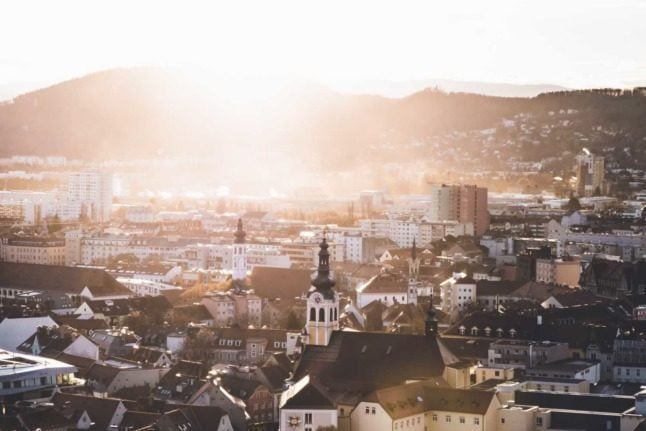SYRIA
Austrian court jails parents who took kids to live under IS
An Austrian court on Friday sentenced to up to 10 years in jail two couples who took their children to live in an IS-controlled part of Syria and showed them execution videos.
Published: 3 June 2017 09:23 CEST

An Islamic State flag being removed by a member of the US-backed Syrian Democratic Forces in Tabqa, Syria, in April 2017. File photo: Delil Souleiman/AFP
The two men and their wives travelled to Syria with their eight children — the youngest of whom was two years old — in December 2014, the trial in the southern city Graz heard.
Housed by the Islamic State extremist group, the children had to watch the gruesome videos for initiation and one seven-year-old boy was even present at a beheading.
Defendant Hasan O., 49, denied in court being a member of IS and said that he worked as a masseur treating injured fighters.
“I heard in the mosque (in Graz) that you can live according to Islam there, with freedom for the women and children,” he told the trial.
He just wanted to spend “10 or 12 days” there, he said.
The dream soon went sour, however, and the families fled Syria in April 2016. Turkey then extradited them to Austria and the children were taken into care.
All four — Hasan O. and his wife Kata O., Enes S. and his wife Michaela S. — were convicted of belonging to a terrorist organisation and of mistreating and neglecting children.
They were sentenced to 10 years behind bars except Kata O. who was given nine years. All except Austrian-born Muslim convert Michaela S. were from Bosnia but all had Austrian citizenship.
The judge said that the sentences were intended to show “that the state of Austria won't accept something like this”.
Austria has so far been spared the spate of Islamist extremist attacks suffered in recent years by other European countries.
However some 300 people from the 8.7-million-strong nation have travelled to Syria since the civil war there began, one of the highest numbers per capita in the European Union.
Url copied to clipboard!


 Please whitelist us to continue reading.
Please whitelist us to continue reading.